The world of work is changing. High growth startups and scale-ups are transitioning away from permanent hires and embracing more flexible and temporary remote working models.
This is being reflected when it comes to sourcing technical skills too. Rather than hiring permanent software developers, they are instead looking at more flexible solutions that allow them to develop products and solutions faster, and fill critical technical skills gaps at speed.
Finding high quality developers is easier said than done. There’s plenty of developers out in the market, but identifying the select few who have a valuable technical skillset is the challenge for most CTOs.
So what makes for a high quality software developer in 2020? What developer skills should CTOs be looking out for in order to hire or work with the best talent out there?
There’s No Substitute for Knowledge
To meet the needs of highly niche technical job roles, first and foremost, software developers require extreme depth of knowledge in their respective field.
They need to be on the cutting edge, have a good understanding of common problems and be able to proactively overcome challenges regularly faced in their area of expertise.
On top of that, they also need to be great communicators with superb time management that can learn quickly and work well with others, all while maintaining a high-end user focus.
To operate at an elite level, developers will need to have 3 key skills in particular to deliver value for the most innovative of businesses.
These primarily include:
- Problem solving
- Managing data
- Algorithm management
Assess Developer Soft Skills to Ensure Culture Fit
Beyond technical skills and qualifications, high quality developers should show a good level of humility and relational smarts, while also being prepared to work in a cohesive team and offer complements when relevant.
Attitude also plays an important role. With the changing nature of high growth businesses, developers need to be open minded and eager to build their knowledge. Their mindset must reflect this philosophy and they must also be keen to seek out problems and find solutions.
The best developers hired in the world’s fastest growing companies embrace the idea of shared code-ownership and are open to new ideas and recommendations on how they can improve.
These softer skills are just as important as the development talent.
Mastering Programming Languages
Beyond the softer skills which help developers fit comfortably into a companies’ culture, high quality developers will have a comprehensive knowledge of at least one programming language.
The 5 most in demand programming languages right now are:
Javascript
Appearing in over 14% of job postings on Indeed, JavaScript skills remain in high demand. As the most-used programming language, it’s in a state of constant evolution. Operating across multiple industries and roles, Javascript remains a critical language in the development sector.
Java
A mainstay of Android mobile development, Java has been a popular skill for software engineers for over two decades. Working across platforms, and allowing companies to develop code on one system and run it with other compatible machines, Java’s flexibility maintains its popularity in development projects.
Python
As the fastest growing development language, Python is playing a rapidly growing role in the development sector and is a significant technology in data science. Offering versatility, simple ease of use and fast development times, Python is set to grow even further into the future, making it an increasingly critical language.
Node.js
Node.js is a programming language that’s in high demand right now. This shift in demand is largely due to the growth of data-intensive IOT devices and applications that are best built using Node.js.
The benefits offered by Node.JS such as unparalleled scalability, less development time and the need for a fewer number of servers, has led to it becoming an ideal choice for tech companies & developers alike.
SQL
Present in 22% of all tech job postings, SQL is an absolutely critical technical skill. As the most universal database language, SQL powers many commonly used database engines. Used by technical, marketing and sales teams, SQL data has a diverse range of functions that are used to inform key business decisions, making it essential.
Seek a healthy blend of hard and soft skills
Understanding one of these languages is critical as most job roles will be reliant on the developer’s knowledge of their specialist area. Each has its own unique rules, best practices and strengths and so developers need to know how to make the most of their specialist language’s capabilities.
Python, Javascript and Java are particularly sought after in the market and are often considered to be most engineer’s preferred coding languages due to their useful and well-maintained libraries and packages.
Beyond deep expertise in their field, developers must also possess other key skills and knowledge that enable them to fulfil the responsibilities of a technical role. A healthy blend of hard and soft skills is essential for any software developer to fully contribute to your team.
Familiarity With Source Control
As a key part of software development, source control plays a major role in the management and delivery of technical projects. With teamwork being a key component in the successful delivery of technical work, source control is critical as it gives developers a way to work on the same code at the same time, without destroying each other’s contributions.
With such a significant role in successful project delivery, it’s essential developers know how to check code in and out, and merge any changes made from multiple sources.
In addition, developers should be very familiar with at least one source control system and the basic concepts involved.
Concept Tools for Source Control
Developers must also be familiar with the concept tools regularly used in source control.
Git
Git is the most widely used source control system. The majority of developers are familiar with it due to its widespread use. The system uses a distributed architecture and is designed to prioritise performance, security and flexibility.
Mercurial SCM
Mercurial is a commonly used source control system that can be easily customised to meet the requirements of the job. It’s functionality can be changed as and when required and uses a decentralised model to support multiple workflows at the same time.
Subversion (SVN)
SVN is the most popular centralised version control system. In this system, all files and historical data is stored on a central server. Whenever developers make changes, they are reflected in the centralised repository.
Developers must be able to work with both centralised and decentralised version control systems and understand their strengths and weaknesses as they play an essential role in technical development projects.
Using Integrated Development Environments (IDEs)
Integrated development environments allow developers to write, modify, compile, run and debug their code. As such, they play a critical role in the development of technical projects and are fundamental tools to ensure high quality and consistent code.
Typically IDEs not only improve code quality but also speed up development and help maximise the value of the developer’s output.
Different development languages often have different IDE programmes and developers who know their stuff will be familiar with the IDE that matches their skill set.
For C, C++ and C# developers, Visual Studio or Code::Blocks are typically used. For Python developers Spyder, Jupyter and Pycharm are commonplace. Finally, for Java professionals, Netbeans, Eclipse and IntelliJ IDEA are considered to be the most valuable.
Whatever development language technical professionals use, they must be familiar with the relevant IDE, this plays a key role in optimising their quality of their work.
Understanding How Databases Work
Working with databases is a fundamental part of any developer’s role. Technical professionals should know how to store, create, insert, update and delete records when necessary. All application and software development requires some form of database usage and so developers need to be able to use them efficiently and this requires a comprehensive knowledge.
A quality developer should know more than just how to use a database, but also to make the most of the value it can offer in a project. For example, backing database contents up to ensure data is not lost and is secure.
The best developers should know how to work with multiple SQL queries as different companies will often be running different databases, including;
- Oracle
- PostgreSQL
- MongoDB
- Cassandra
- Redis
Database management and use is a key developer skill, and plays an essential role in the effective delivery of a technical project.
Knowing the Nuances of Different Operating Systems
Different operating systems work in different ways and so developers should understand the nuances of each. This is a key skill as it will often fundamentally change the requirements, challenges and opportunities involved in a development project.
The 3 essential operating systems developers need to know are Linux, Windows and Mac. In most instances development will require compatibility across these 3 in particular. However, if the technical project is designed for mobile or tablet devices, then the developer needs to be familiar with Android and iOS as well.
Whatever the requirements, understanding the differences between operating systems is crucial, as when problems arise, developers need to know whether the OS is playing a role and how it can be tested, as this will help identify and solve the problem.
In addition, experienced developers will likely have previous knowledge of issues caused by OS in product development and this familiarity may help them to overcome challenges faster.
Operating systems play a major in technical projects and so understanding how they work is an essential developer skill that helps to maximise the efficiency of delivery.
An Appreciation of Basic Testing
Testing plays a major role in the software development process, ensuring code achieves the necessary functionality and meets the required standards. Testing also ensures errors are flagged early and faulty output is avoided wherever possible. This is particularly important when developing a new product from the ground up and showcases why it’s such an important developer skill.
Testing comes in many forms and developers need to understand them all to effectively test their output and ensure they’re meeting the necessary standards.
Code Quality Review
The code quality review plays a key part of the quality assurance process, bringing programmers together in order to review code from multiple perspectives.
By having a fresh pair of eyes review the code, mistakes and errors can be quickly identified and rectified. These peer reviews save time by streamlining the development process up-front and significantly reduce the strain on quality assurance teams at the end of the project.
Developers must be able to review other developer’s code and find mistakes as they will play a key role in not only checking their own output, but others too.
Unit Testing
Unit testing is the evaluation of individual components of a piece of software. It is designed to ensure all pieces of a technical project are performing their function optimally and help break the overall testing process down to find errors.
Most units that are tested often have few inputs and only a single output. Developers need to be familiar with unit testing frameworks that are relevant to their development language alongside, drivers, stubs and mock objects. These all play a major role in the unit testing process.
Integration Testing
Following on from unit testing, developers must also be familiar with integration testing. This expands on the unit testing approach and involves multiple units, evaluating the interaction between them to ensure they work cohesively and function as they are designed.
This test looks at how data is processed and evaluates whether it functions correctly, producing the expected outputs.
Performance/System Testing
Performance testing is designed to evaluate a system’s responsiveness and stability under a certain load. Developers need to ensure what they build is fit for purpose, so relative performance testing is essential.
Understanding how different system tests (load, stress, endurance and spike testing) work and the role they play in evaluating software output is a key skill for any developer. Performance is often the name of the game when it comes to building high quality technical output, so developers must be able to evaluate their work effectively.
Security Testing
Security testing is designed to identify vulnerabilities in a piece of software or system.
Developers need to be familiar with the 4 key areas of security testing:
- Network security – Looking for vulnerabilities in the network infrastructure.
- System software security – Evaluating weaknesses in the software components, including the operating system, the database system and other software the application uses.
- Client-side application security – assessing the client/browser to ensure it cannot be manipulated.
- Server-side application security – reviewing the server code and other technologies to ensure there are no back doors.
Security testing is an essential part of the overall testing process and it’s critical developers have a good familiarity of typical components involved.
Developers need to be familiar and capable to conduct all of the above tests on their technical output. This is a key skill as it ensures that what they produce is of the necessary quality and works effectively.
Understanding the Software Development Life Cycle (SDLC)
The software development life cycle is the multi-step process used to develop reliable and high quality software with minimal errors.
All software developers must have a comprehensive knowledge of these stages, how they work, what’s involved in each and an understanding of how they link together.
Without an appreciation for this system and the stages involved, developers will struggle to to work to an effective development flow.
There are typically 7 steps involved in the software development life cycle:
- Requirement gathering and analysis
- Feasibility study
- Design
- Implementation and coding
- Testing
- Deployment
- Maintenance
Artificial Intelligence (AI) and Machine Learning
Not only is artificial intelligence a rapidly growing technology, it’s widely predicted that it will be one that has a profound impact across almost every industry in the future.
It’s therefore no surprise that developers that hiring growth for AI developers has grown 74% over the past 4 years. According to McKinsey, 49% of companies are currently exploring or planning to use machine learning.
As AI enabled products and services rapidly enter the market, developers with knowledge of machine learning, AI integration and AI application programming, natural language processing, and change management experience are in high demand.
Filling technical skills gaps with remote developer talent
There’s no doubt that there’s a pool of talented developers in the market today whose skills match elements of those mentioned in some shape or form.
But for many startups and scale-ups, that talent is often difficult to access and filling technical skills gaps can be a tall order.
Elite developers capable of working with cutting edge technology are often snapped up quickly by the big technology companies. The freelance market offers up a mixed bag of developers who don’t always fit naturally into a business, or their skills just don’t meet the grade.
It’s for these reasons that remote development teams have become more popular in recent years as a solution to overcome technical skills gaps in high growth businesses.
More companies than ever are embracing cross border collaboration, building distributed teams and hiring remote workers to source the key skills they need. Other companies have fully embraced the remote philosophy, creating entire hubs of remote experts to access the talent at source.
However you go about filling technical skills gaps in your business, the skills listed above should help guide you towards finding the right talent or remote teams that can deliver your software development projects effectively.







 Home #1
Home #1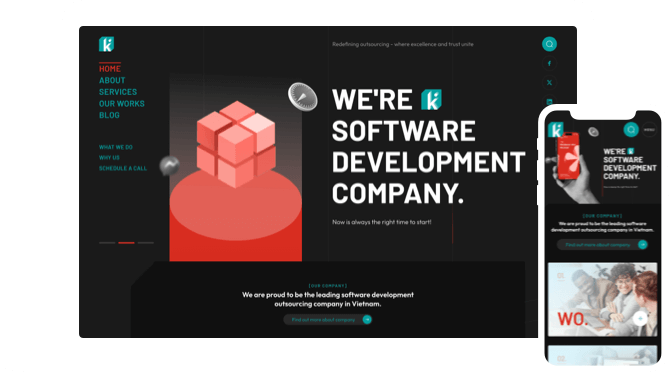 Home #2
Home #2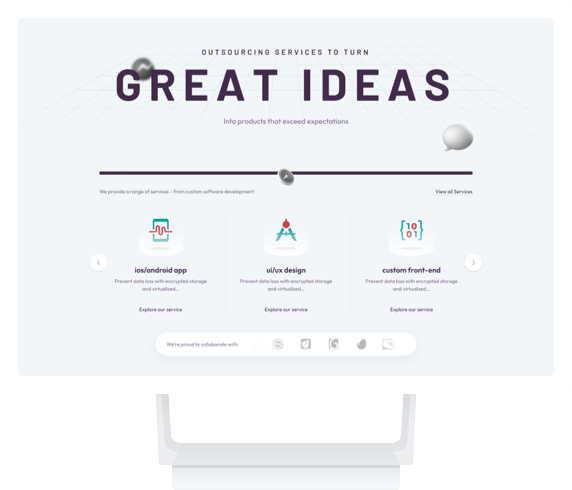 Home #3
Home #3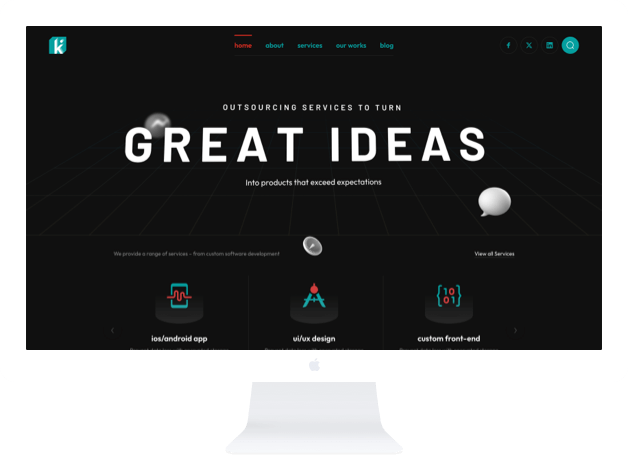 Home #4
Home #4 Home #5
Home #5 Home #6
Home #6 Home #7
Home #7 Home #8
Home #8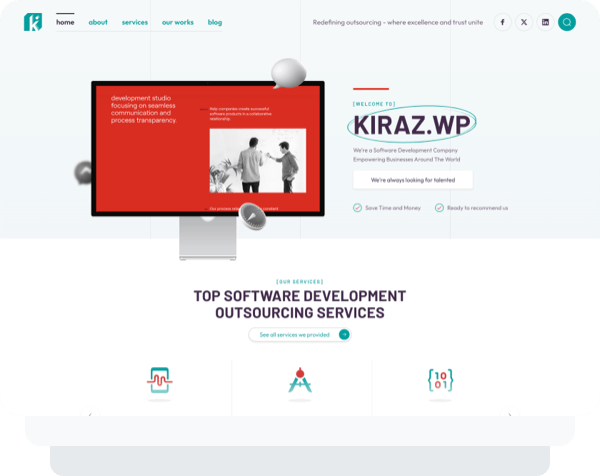 Home #9
Home #9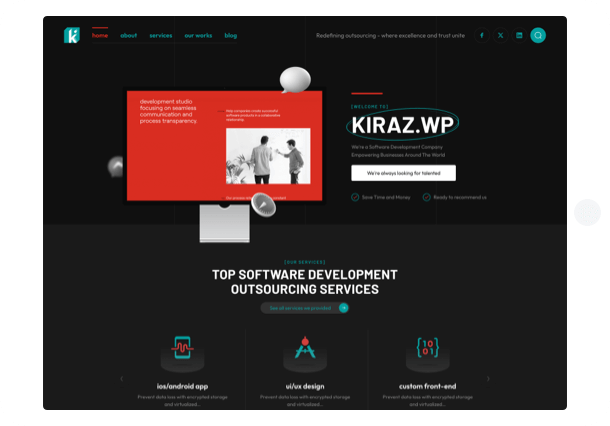 Home #10
Home #10